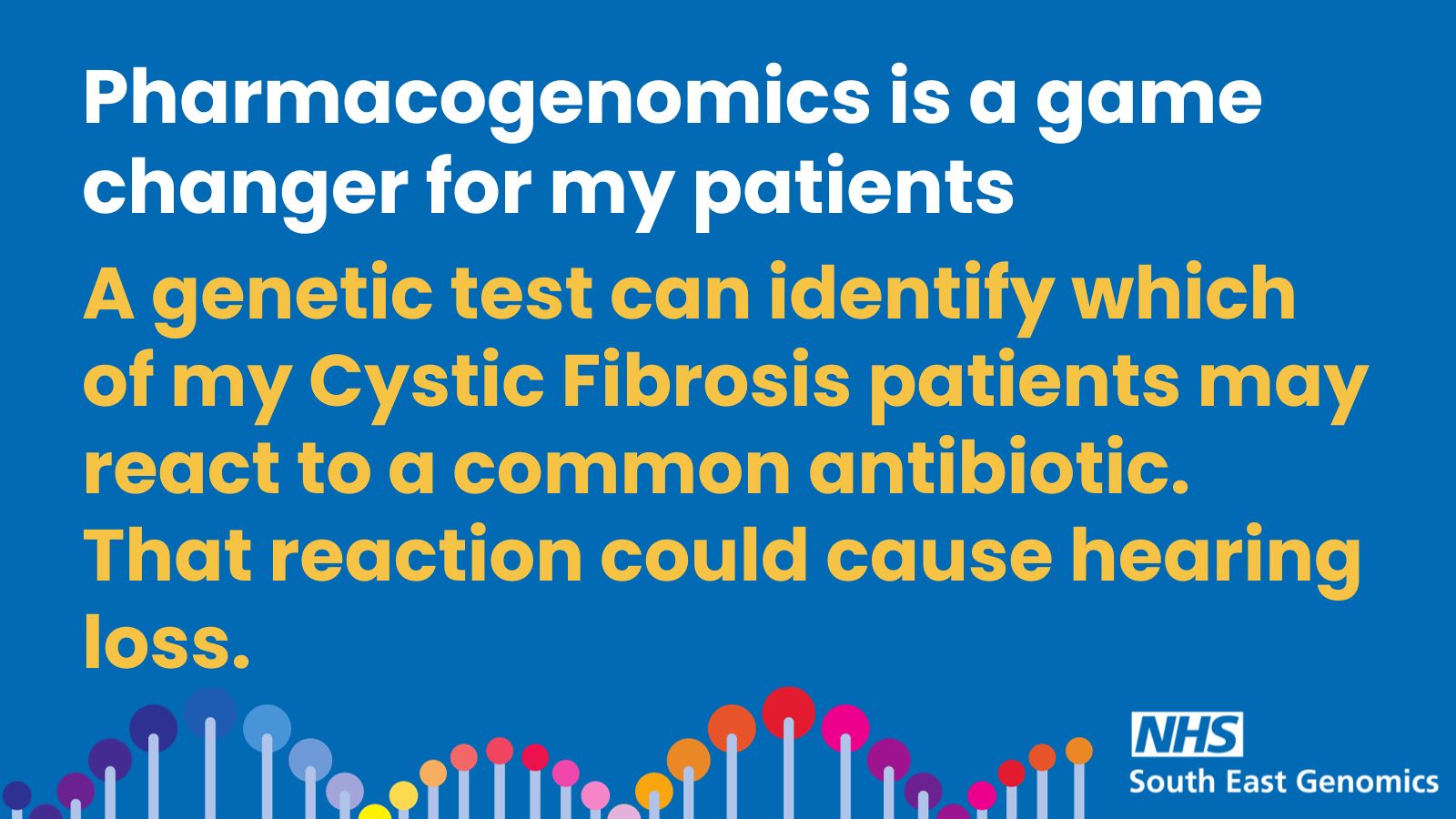
To celebrate World Pharmacist Day, we’re exploring how genomics is changing the way many pharmacists work.
Christian Chadwick is a pharmacist at the University Hospitals Sussex in Brighton where he specialises in neonatal intensive care. He also looks after children who have Cystic Fibrosis. Pharmacogenomics has had an impact on the use of antibiotics in his patients.
“I first got involved with genomics for my Cystic Fibrosis patients when a pharmacogenetic test became available that would identify patients who were at high risk of having a potentially harmful response to a particular medication. It was a game changer.”
A very small proportion of people have a genetic mutation that means they are at higher risk of an adverse reaction to an antibiotic that is commonly used in people with cystic fibrosis. Whilst this antibiotic is used to safely treat thousands of people every day, in a very small number it could trigger a reaction that causes permanent hearing loss. Until recently we couldn’t tell which children had the genetic change.
“This ground breaking pharmacogenetic test is available on the NHS for patients at high risk of certain infections, and the children in my Cystic Fibrosis unit can benefit. If they test positive for the genetic change, then I know which antibiotics are more likely to be safe to prescribe for them.”
Genomics and precision medicine are the future of pharmacy
“These are exciting developments. Traditionally as a pharmacist, I know that it can take some time to find the right medication for my patients. Researchers are learning more about pharmacogenetic testing all the time. In the future pharmacogenomics will undoubtedly reduce the risks for my patients. The testing will ensure I have a better idea of which medicines are likely to work best for each individual patient. That means they can get better quicker and avoid unnecessary side effects.”
The NHS is committed to become the first national healthcare system to embed genomics into our day to day care.
The Genomics Medicine Service in the South East delivers the pharmacogenetic testing for the children with Cystic Fibrosis.
